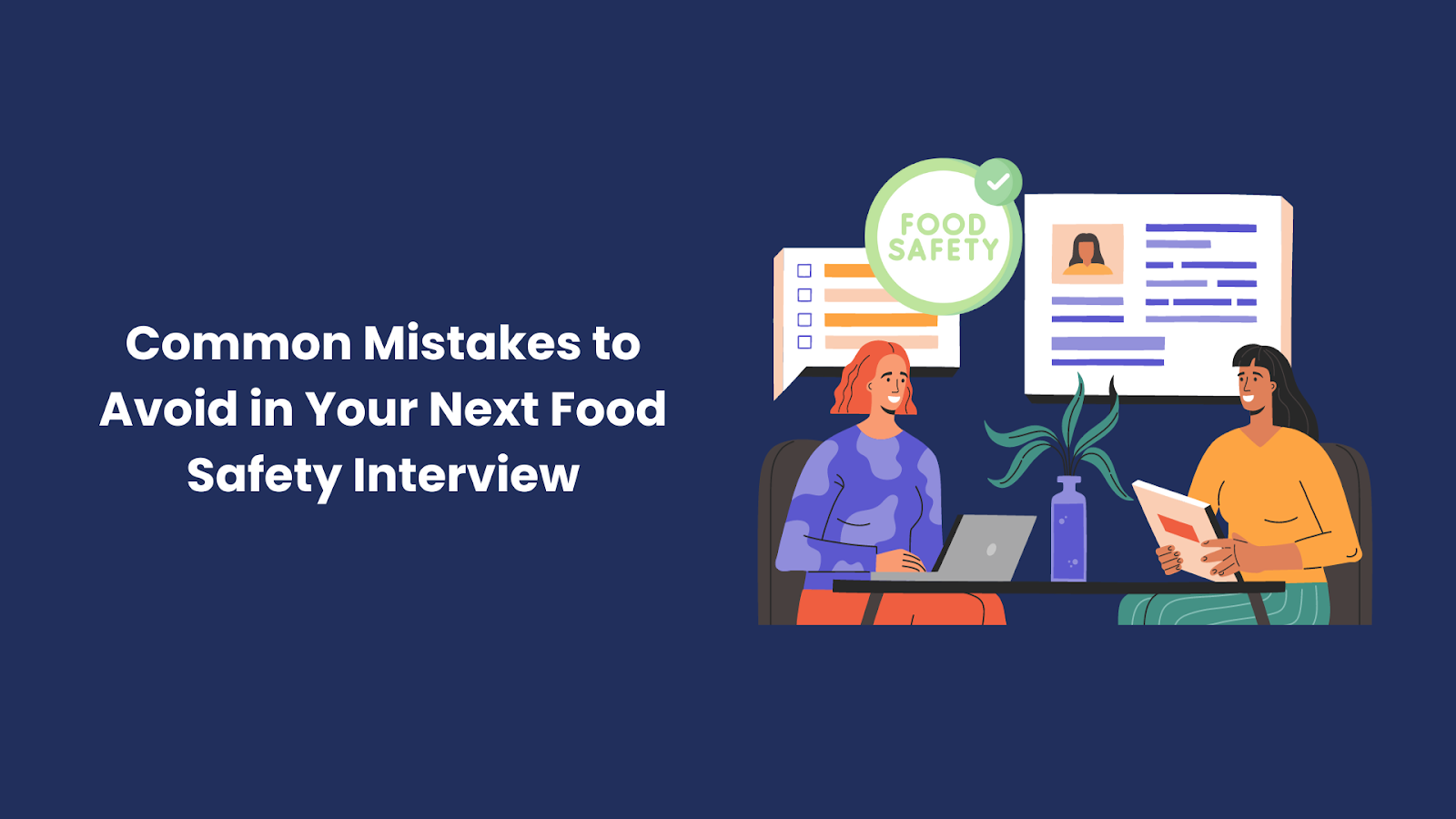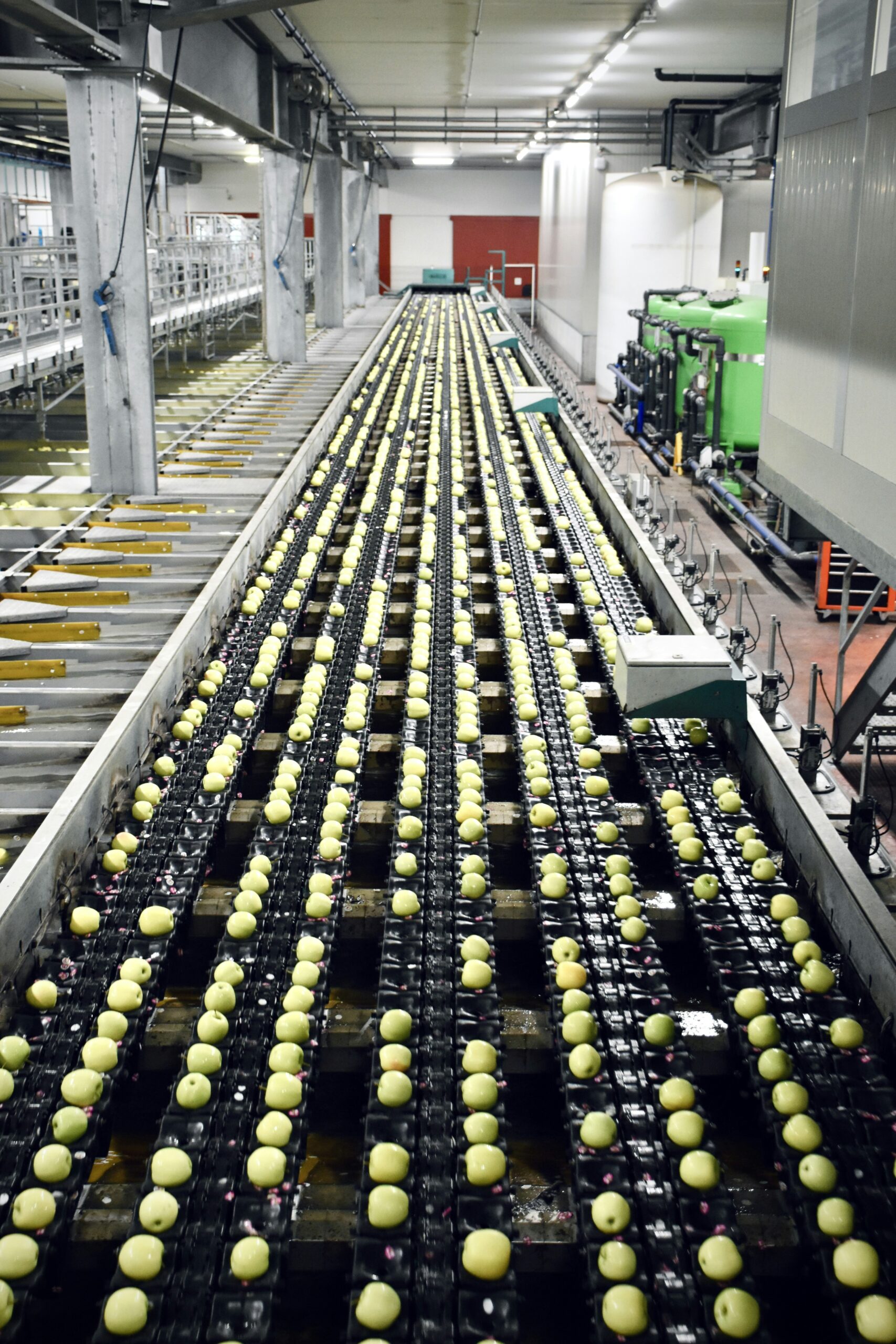The food business places a high priority on food safety, and experts in this area are essential to guaranteeing the quality and safety of our food. You’ll probably be in a food safety interview if you want to work in or grow in the industry. We’ll go through typical blunders to avoid and crucial tactics to ace your next food safety interview to help you prepare efficiently. We’ll also review the importance of Food Safety Certification and focus on important Food Safety Interview Questions during a food safety interview.
Table of contents
- The Significance of Safe Food
- Most Common Errors to Avoid
- Absence of Planning
- Ignoring the Fundamentals
- Inadequate Certificatṅions
- Incapable of Communicating
- Ignoring Behavioural Inquiries
- Techniques for Achievement
- Crucial Interview Questions for Food Safety
- Conclusion
The Significance of Safe Food
Before discussing interview advice, let’s emphasise how important food safety is. Strict regulations are in place on the food business to protect public health. Experts must strictly follow food safety regulations and requirements since foodborne diseases may have serious repercussions. Whether you work as an auditor, manager, expert, or inspector for food safety, you have a critical role to play in avoiding foodborne diseases, guaranteeing food quality, and upholding regulatory compliance.
Most Common Errors to Avoid
To ace your food safety interview, steer clear of these typical blunders:
Absence of Planning
Not being well-prepared for the interview is one of the most common mistakes. This includes failing to investigate market trends, the firm, and its food safety procedures.
Fulfil your assignment. Examine the company’s goals, core principles, and food safety-related news. Become familiar with new trends and industry rules. This information shows that you are interested and dedicated.
Ignoring the Fundamentals
It may be quite dangerous to overlook basic food safety language and concepts. Interviewers look for applicants who understand the fundamentals rather well.
Examine fundamental concepts in food safety, such as the FDA Food Code and HACCP (Hazard Analysis and Critical Control Points). Be ready to talk about concepts related to food safety, such as temperature danger zones, cross-contamination, and hygienic practices.
Inadequate Certificatṅions
It might be harmful to downplay the significance of food safety certification. Certification is a requirement for many food safety jobs.
Obtain relevant qualifications in food safety, such as the ServSafe Food Protection Manager Certification. Possessing these certificates increases your reputation as a food safety expert and shows your expertise.
Incapable of Communicating
Ineffective written and vocal communication abilities might hurt your prospects. Effective communication is essential in positions involving food safety, where precise instructions and reporting are critical.
Work on your communication abilities. When responding, use clarity, confidence, and conciseness. Showcase the times you and your team members have successfully explained food safety procedures.
Ignoring Behavioural Inquiries
Concentrating on technical knowledge while ignoring behavioural questions is a typical mistake. Interviewers often evaluate your prior situational handling skills.
Consider utilising the STAR approach (Situation, Task, Action, Result) to prepare for behavioural questions. Give concrete instances when you were able to use your understanding of food safety, your problem-solving abilities, or your collaboration.
Techniques for Achievement
Now that you know what to look out for, let’s talk about how to ace your food safety interview:
- Emphasise how well you grasp the laws, policies, and recommended practices about food safety. Talk about your past employment where you used these ideas and their effect on food safety.
- Show that you are dedicated to adhering to the law. Describe situations in which you ensured food safety regulations and guidelines were followed.
- Give an example of your problem-solving techniques about food safety. Give instances of how you’ve found and fixed problems with food safety or put preventative measures in place.
- Food safety often necessitates cooperation with other people. Tell tales of effective collaboration in upholding food safety regulations or handling emergencies.
- Emphasise your capacity to adapt and your desire to keep up with developments in food safety. Talk about any education, training, or certifications you have obtained in food safety.
- Certification of Food Safety and Its Importance
- A certification in food safety is a great advantage in the food business. It demonstrates your knowledge and dedication to maintaining food safety. Certifications such as ServSafe, Safe Quality Food (SQF), and Certified Food Safety Manager (CFSM) are highly respected and often necessary for certain tasks.
- Securing certification indicates that you have the know-how to uphold food safety standards, avoid foodborne infections, and follow the rules. It’s a career investment that might lead to several possibilities in the food safety industry.
Crucial Interview Questions for Food Safety
Take into consideration these typical interview questions as you get ready for your food safety interview:
- How does HACCP relate to food safety, and what does it mean?
- How can food safety be ensured in a busy kitchen or food manufacturing setting?
- Could you provide an example of a circumstance when you determined that there was a risk to food safety and solved it?
- What actions would you take if there was a suspicion of a foodborne disease epidemic at your facility?
- How do you keep up with industry changes and laws about food safety?
- Could you elaborate on the significance of preventing cross-contamination while handling food?
- Explain the method you use to teach employees about food safety procedures.
In summary
Food safety is of the utmost importance in the food business, and being hired in this sector depends on doing well in your food safety interview. You may present yourself as a competent candidate by avoiding frequent blunders, demonstrating your expertise, stressing compliance, discussing problem-solving and cooperation, and emphasising flexibility. Don’t undervalue the significance of having a food safety certification, and be ready to respond confidently to important food safety interview questions. Recall that your contribution to food safety benefits consumer health and industry reputation, making your knowledge valuable.











